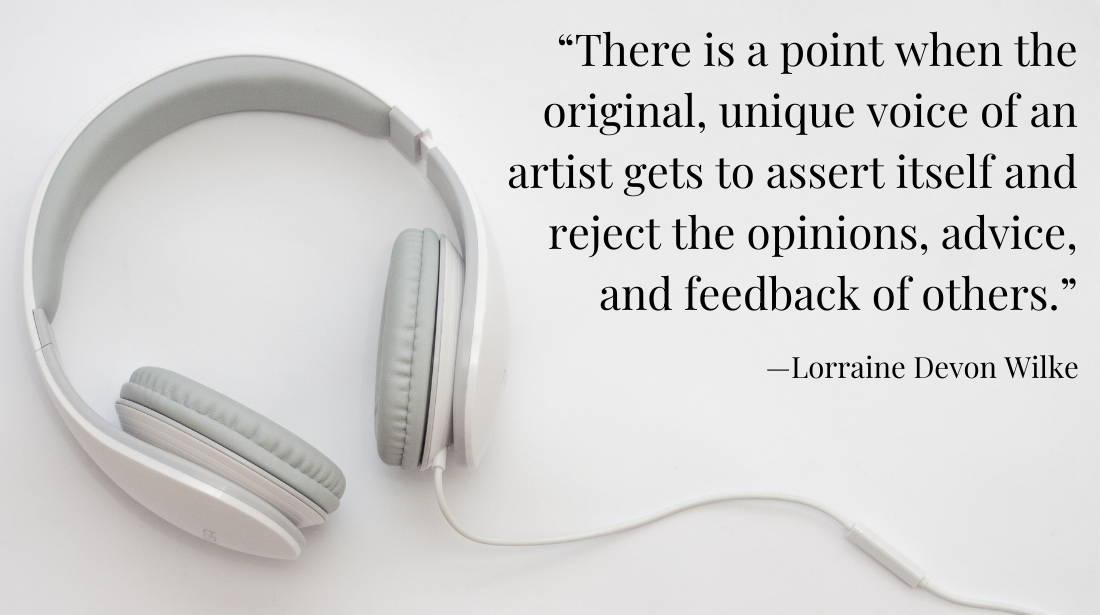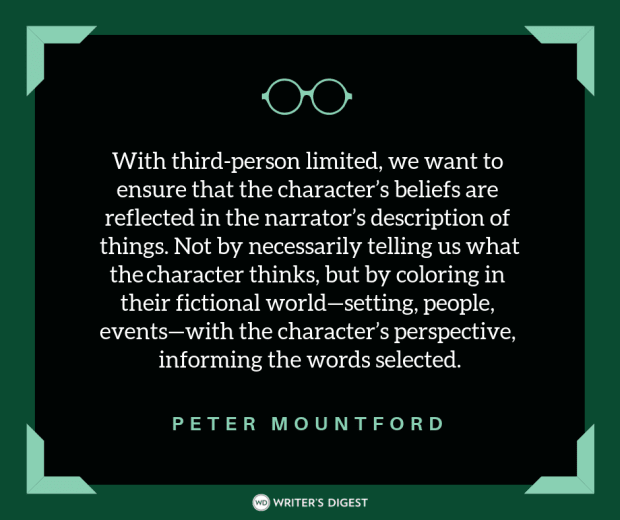Take Your Writing Further: How to Get the Most Out of Writing Exercises
The following is a guest post from one of WD’s bloggers from our NaNoWriMo project, EJ Runyon. In this post, EJ describes the importance of moving past using writing exercises…
The following is a guest post from one of WD's bloggers from our NaNoWriMo project, EJ Runyon. In this post, EJ describes the importance of moving past using writing exercises and learning how to turn the exercises into usable content for your work-in-progress. Using an exercise should only be the first of several steps in beginning your writing process, particularly as a beginner.
* * * * *
Novice writers spend a lot of time reading blogs and other websites that offer exercises, story starters and prompts to try out writing skills.
Write a list your antagonist will use shopping.
What would an apple say if it could plead for its life?
And we all dig in and write out small drabbles. It’s a start. Especially for new writers wanting to flex writing muscles.
But if you exercise, then nothing more, will you ever discover where those exercises might take you?
Let’s take the steps of expanding those exercises by questioning them. The goal is reviewing with an eye for "exercises into scenes": looking at your work and taking the next step; reworking exercises into actual storytelling.
Let’s say you were given a word or two for starting the beginning of a sentence,
“First thing in the morning…”
Your task is to write anything for 5 minutes. So you look at your paper, or the keyboard and you begin writing:
First thing in the morning all I have to do is get up and write my page. I tell myself this every morning yet I can’t seem to follow through. I reassure myself I will tomorrow. Am I lacking the will or am I unable to do it at all? Instead of doing what I need to do, want to do, I end up wandering into the kitchen, getting coffee; then I’m off through my day.
Cool.
After a while you have disk files or notebooks full of these exercises. But you don't have many finished stories or novels written. How much time do you think the average beginner spends working with writing exercises? How much time creating short stories or novels? Where is the disconnect? What does it take to move to the next step? To begin looking at your own work? It takes questioning. Not much else.
Ask yourself questions like these:
- Does the exercise paragraph mean anything?
- Can you use this for a character study?
- Can you use this as a piece of dialogue?
- Can it be expanded into a scene or a hunk of narrative?
Your answer might be, “I’d say, the way it reads now, a lot more work’s needed.”
Unhappily, if you work the way some novices do, the way I started out working, you’re constantly exercising, but anxious about the rest. You're glad for the immediate gratification, and attention, in feedback of the polite, “That’s good work.” But you're afraid to try writing something really whole that begins, has a middle, and ends.
You're afraid of something that requires a quantity of re-writing, editing and revising. That is, you, functioning as a writer by looking, questioning and working with those drabbles.
Let’s take a look at that sample paragraph. And ask it some questions.
After you’ve exercised, start by asking the questions above. Take notes. Call these notes of yours pre-work, if you want. You can then turn questioned exercises into a new start of a scene or story.
* * * * *
Looking for some exercises to practice EJ's techniques?
Try James Scott Bell's The Art of War for Writers, which
features strategies, tactics and exercises for fiction writers!
* * * * *
Not every exercise will blossom into a viable story, but then, if you’re given an exercise you can always make sure it will: Focusing on what you want the exercise to become. Make the exercise work for your writing, not the other way around.
Let’s use the sample paragraph to work though what we have on our page. After the sample you can move on to your own exercises. Getting them to work for you. Here’s what to ask:
Does the paragraph mean anything?
No, not much now, at least not the way I left it. Nothing I can see.
Can you use this for a character study?
I can probably write a girl who is bored with her job, but can’t let herself take up writing for a living. Or a guy who got a new journal from his girlfriend for his birthday—maybe she’s a real artsy type—he’s trying to score some points with her.
Can you mold it into a piece of dialogue?
It might work for internal dialogue, how she talks, putting herself down. To her mom? Or hey—about what she says to a shrink, or a best friend? Yeah.
Can it be expanded into a scene or a hunk of narrative?
The wandering into the kitchen, getting coffee is a good part. Maybe more with descriptions? How the kitchen looks, things like that.
Maybe the guy can be talking to his girl over coffee on the weekend, when they’re together and she gets on his case ‘cause the journal she gave him is still empty.
Do you see where looking at your work can take you? Exercising is only the first step.
Posing these types of questions and answering them is step two.
And acting on those answers is step three—that’s the getting down to writing that counts the most.
About EJ Runyon: I'm a lucky soul. I'm living my dream. I began my transformation in 1992. Started writing NaNoWriMo in 2001, and in 2006 I sold my house to go back to school, for degrees in English/Creative Writing and Online Teaching & Learning.
Now it's writing and coaching daily. It's my new life and I love it.
NaNoWriMo sent me on the path to reach writer's nirvana. In 2012, six short stories pulled from various NaNo novels became part of "Claiming One," a story collection from Inspired Quill (UK). Then, in 2013, my 2008 NaNo became Tell Me (How to Write) A Story, a writer's guide. This year, 2003 NaNo's became my debut Literary/LGBTQ novel, A House of Light & Stone.
I'm a Scrivener pantser all the way, and even created a jumpstart template for coaching clients. It's been everything wonderful I'd possibly dream. 2016 & 2017 will see another how-to and a second novel. I alternate literary fiction with how-to guides.
Cris Freese is a technical writer, professional book editor, literary intern, and the former managing editor of Writer's Digest Books. Cris also edited the annual guides Children's Writer's & Illustrator's Market and Guide to Literary Agents, while also curating, editing, and writing all content for GLA's online companion. crisfreese.com








